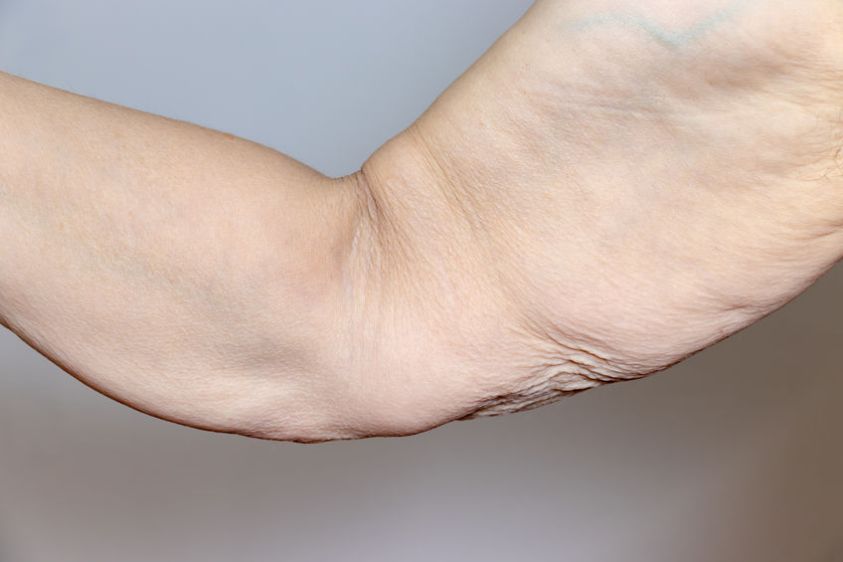 Avoiding Loose Skin Following Weight Loss Surgery
Avoiding Loose Skin Following Weight Loss Surgery
Undergoing weight loss surgery is a significant step towards achieving a healthier body and improving one’s quality of life. However, the journey doesn’t end with surgery. A common concern post-operation is the potential for loose, sagging skin, which can detract from the joy of your transformation. Fortunately, there are proactive steps you can take to minimize the chance of this happening and ensure your results are as positive as possible.
Here are 5 things you can do to prevent loose skin:
- Boost Collagen Intake
- Engage in Regular Physical Exercise
- Maintain a Balanced Diet
- Prioritize Skin Care
- Consider Plastic Surgery
Take Collagen
A processed form of collagen, collagen hydrolysate that is similar to gelatin is found in the connective tissues of animals. Although not yet proven to have positive effects on people with loose skin, it is believed to boost the already existing collagen in the body, hence contributing to the elasticity of the loose skin. It comes in powder form, which can be purchased from local natural food outlets. Bone broth is also a known source of natural collagen. On the other side, it must be coupled with other forms of preventing loose skin like eating a balanced diet and engaging in physical exercises.
Physical Exercises
Physical exercise works the same way protein does – building muscles. When you engage in workouts, you prevent further loss of lean muscles that help hold the skin in place. At the same time, you build more lean muscles that contribute to the elasticity of the skin, hence preventing it from sagging. The best thing about physical exercise as a way of preventing loose skin is that you also burn some extra calories, and as a result, you continue on the weight loss journey. Even as you engage in workouts, ensure to go slow so that you do not end up losing so much weight and cause more skin to sag.
Eat a Balanced Diet
Eating a balanced diet works by improving overall skin health, which in turn helps to enhance its elasticity so that loose skin can become firm and stop sagging. With this in mind, consider having zinc, magnesium, protein, omega 3 and vitamins. Protein contains amino acids lysine and proline, both of which play a key role in collagen production. Fish is a known source of omega-3 fatty acids that are responsible for increasing skin elasticity. Even as you eat these, do not forget to drink plenty of water. This is because it contributes to skin hydration, which in turn leads to increased elasticity.
Take Care of Your Skin Health
The most effective way of preventing loose skin after bariatric surgery is by taking care of your skin’s health. You can do this by using firming creams that contain collagen and elastin, both of which contribute to the elasticity of the skin. Although collagen and elastin molecules are too large to get absorbed through the skin, the creams will give a slight tightness to the skin and achieve the desired skin.
Plastic Surgical Procedures
When all other forms of preventing loose skin have failed, you have no choice but to turn to plastic surgery procedures. A surgeon performs plastic surgery by removing the excessive skin by making small incisions. An alternative to the contouring invasive procedure is cool sculpting after a consultation, which is a less invasive procedure. Experts advise that before thinking of having these surgeries, you should have stabilized weight loss for about 18 months. This is because if you had the procedure and then continue losing weight, you would just have another sagging skin, because of the newly lost weight.
Usually, insurance providers do not cover loose skin surgical procedures unless the skin poses some health risks. If for example the loose skin results in chaffing, blisters, or infections, then the insurance can step and cover the procedure. For the insurer to cover the surgery, they have to ascertain that the loose skin has caused some issues that impact on your general health and wellbeing. It, therefore, means that you should confirm with your insurance provider if they cover the procedure, otherwise you will have to pay for it from your pocket.
Consult with the Weight Loss and Wellness Center:
If you’re considering weight loss surgery, you deserve to work with a team that cares about finding the best weight loss plan for you. Contact the Weight Loss and Wellness Center today for your consultation, or call us at (973) 888-1085.

